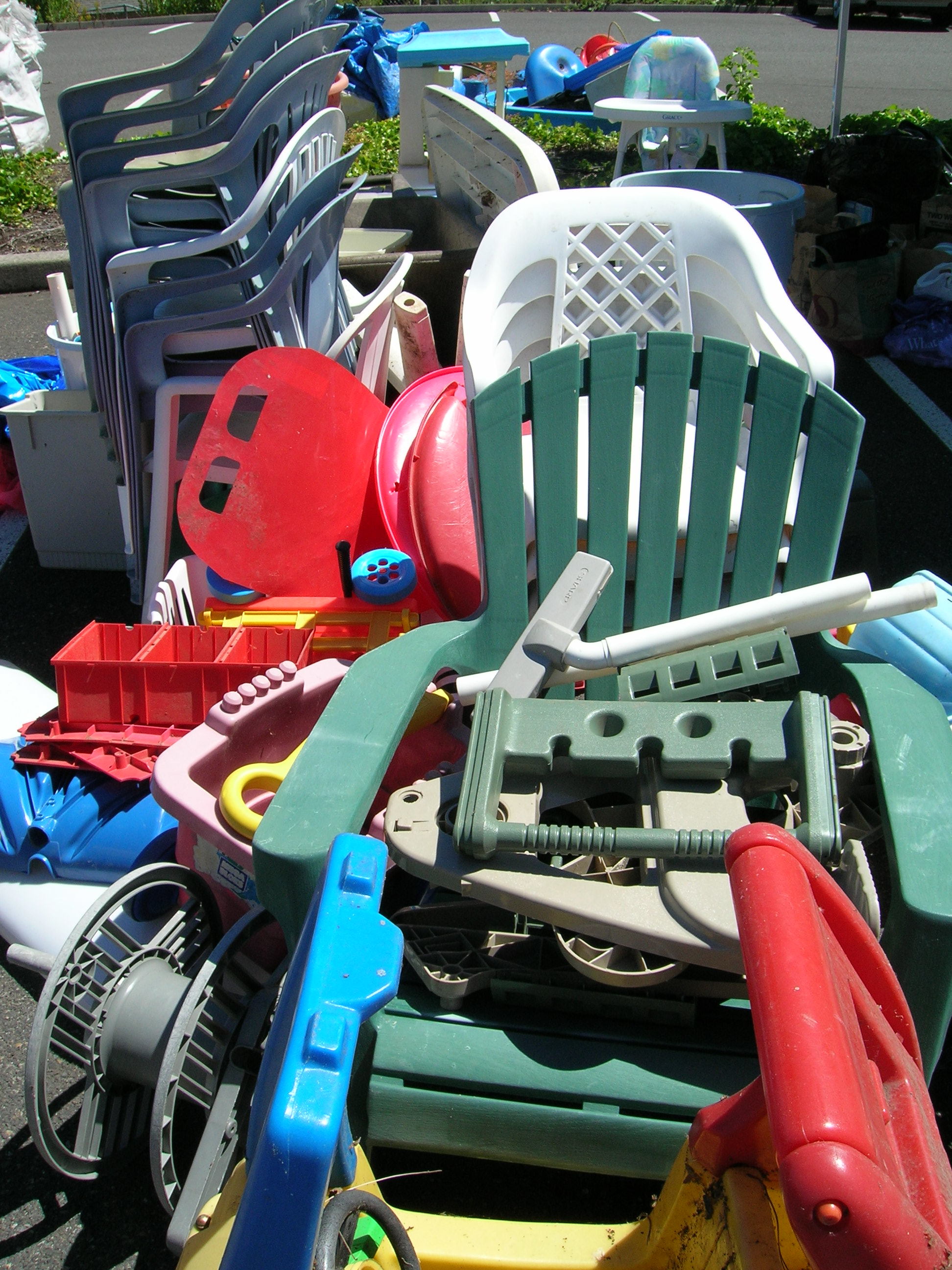Purge the Plastics Pileup
The best strategy in dealing with recycling changes is to reduce and reuse.
Yes, it is true, "extra plastics" recycling is seriously limited right now. Plastic and paper recycling are likely to dwindle even further.
We have a choice: We can store heaps of stuff in hopes that the markets improve or we can take stock and stop the plastics madness.
Personal Power Over Plastics
Take a good look at that pile o’ plastic: where did it come from? Is there one particular product that makes your plastics pile grow? Can you think of a way to avoid that one product?
- Skip Styrofoamtm and plastic wrap by shopping at reuse stores and giving gifts of experience.
- Prevent broken chunks of bulky plastic with the purchase and maintenance of durable products.
- Avoid more than grocery bags by bringing a small tote everywhere you go from the pharmacy to the thrift shop.
- Pass on the doggie bag at the restaurant with your own Pyrex container.
- Block fast food and takeout clamshells, frozen food trays, spoons and forks with home-cooked meals.
- Choose the plastic-free and healthy lunch by bringing your own food.
- Strut past the packaging aisle straight to the bulk department with your own containers.
Pooling Your Power
Master Recyclers are great at bringing community together to solve problems. Here are ideas where you can help your neighbors and friends purge the plastics pileup:
- Organize a discussion group where people can help each other fight their plastics addiction.
- Join the Repair movement by volunteering with the Repair Fair or a Repair Café nearest you.
- Organize a swap party, tool share or freecycle group for people in your close community.
- Volunteer with our region’s sharing and reuse organizations.
Advocate!
- Write companies and demand they make durable products.
- Support the right to repair movement.
- Support product stewardship models like the Oregon E-cycles, Oregon Bottle Bill and PaintCare that require companies to play a role in the end-of-life processing of their products.
- Join organizations who are supporting plastics reduction like the Recycling Advocates, Five Gyres, and Lonely Whale.
- Fill out the Metro Survey on the future of discards in our region.
What priorities do you think should drive the future of garbage, recycling and reuse? Worker safety? Updated equipment for reducing recycling contamination? Healthier products? Company responsibility? Quality of service? Metro wants to know what you think is important.
The cost of plastics to humans, animals and nature starts long before it is time to recycle. Plastic is made from oil and natural gas. While most plastic in the oceans comes from packaging, some comes from the manufacturing process.



